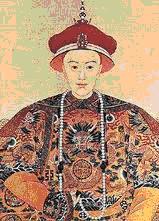*Image Credit: Wikimedia Commons Two massive armies and navies gathered to decide the fate of Penghu on July 16, 1683 – a battle with implications in the present day, as the Qing Dynasty arrived in the Taiwan Strait to lay waste to its last challenger in the region, the Tungning. Led by Admiral Shi Lang, nearly 100,000 men and over 600 warships helped to capture Taiwan for Emperor Kangxi. Leading up to the attack, the Emperor had decided to cease all communication with the small nation just over a hundred miles off the Chinese coast. Fed up with diplomacy, the Emperor mounted an army which few up to that point had been able to match for size – man for man, they outnumbered the Taiwanese force by more than five to one with more than three times as many ships. Shi Lang ordered the military into the Strait, hoping to use Mother Nature to his advantage and capture Penghu before a typhoon made landfall. Liu Guoxuan, leading the Tungning defenders, managed to repel the attack and wait out the storm. Emboldened by the large numbers at his disposal, Shi Lang regrouped to make a second attempt after the wind and heavy rains blew through. Equipping his ships with cannon purchased from the Dutch, Shi Lang divided his navy into a handful of smaller, more nimble flotillas. Knowing his force was superior in every way, he opted to send a portion of his soldiers around to the far side of the island in the hopes of taking Liu Guoxuan’s base – a tactic the Tungning general had anticipated. Within an hour, much of the Tungning fleet was out of ammunition or at the bottom of the sea. The Qing armada had routed their opponents, yet many under the command of Liu Guoxuan opted to drown instead of surrendering to the enemy. Simultaneously, on land, near the base of operations for the defenders, tens of thousands of Qing troops landed for an assault. Armed with arrows and cannons, the Tungning force beat back the onrushing invaders before succumbing to the sheer numbers mounted against them. The Qing, having burnt the fort to the ground and raised their flag, watched as the Tungning ships smoldered in the Strait. Though Liu Guoxuan had performed admirably against impossible odds, he still felt compelled to perform ritual suicide for not living up to his command to defend the island. Shi Lang stopped him, releasing his opposing leader just as the Tungning army began to desert him. The Taiwanese king, Zheng Keshuang, now certain his country could not prevent the Qing emperor from taking control of the island, soon offered a formal admission of defeat. The Tungning kingdom – and, with it, the last remnants of Ming loyalty – had come to an end.
July 16, 1683 CE – Shi Lang Eliminates the Last Competitor of the Qing Dynasty at the Battle of Penghu
*Image Credit: Wikimedia Commons Two massive armies and navies gathered to decide the fate of Penghu on July 16, 1683 – a battle with implications in the present day, as…
516
